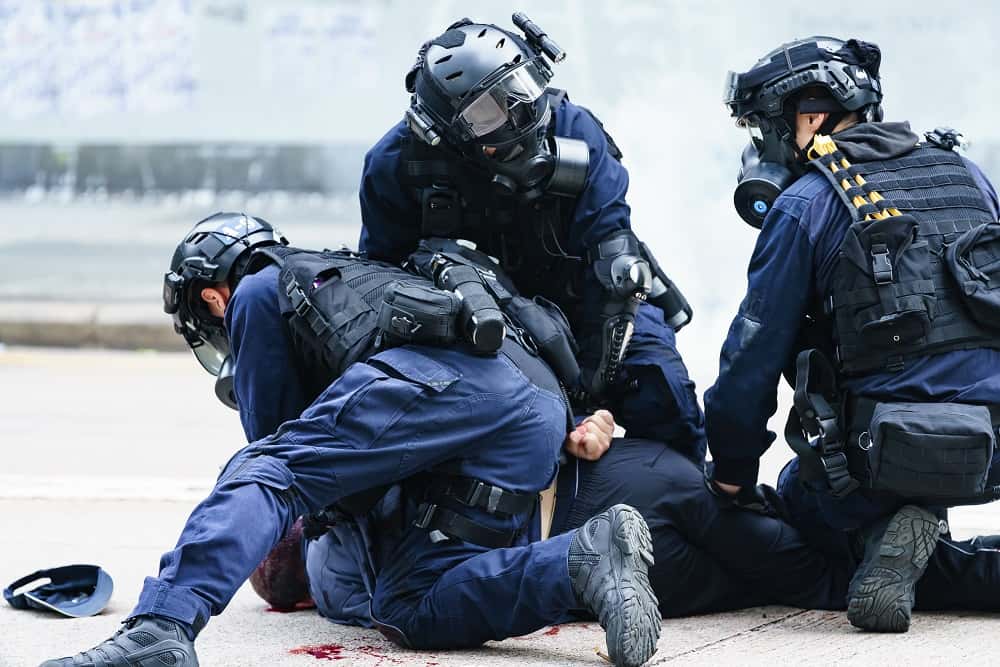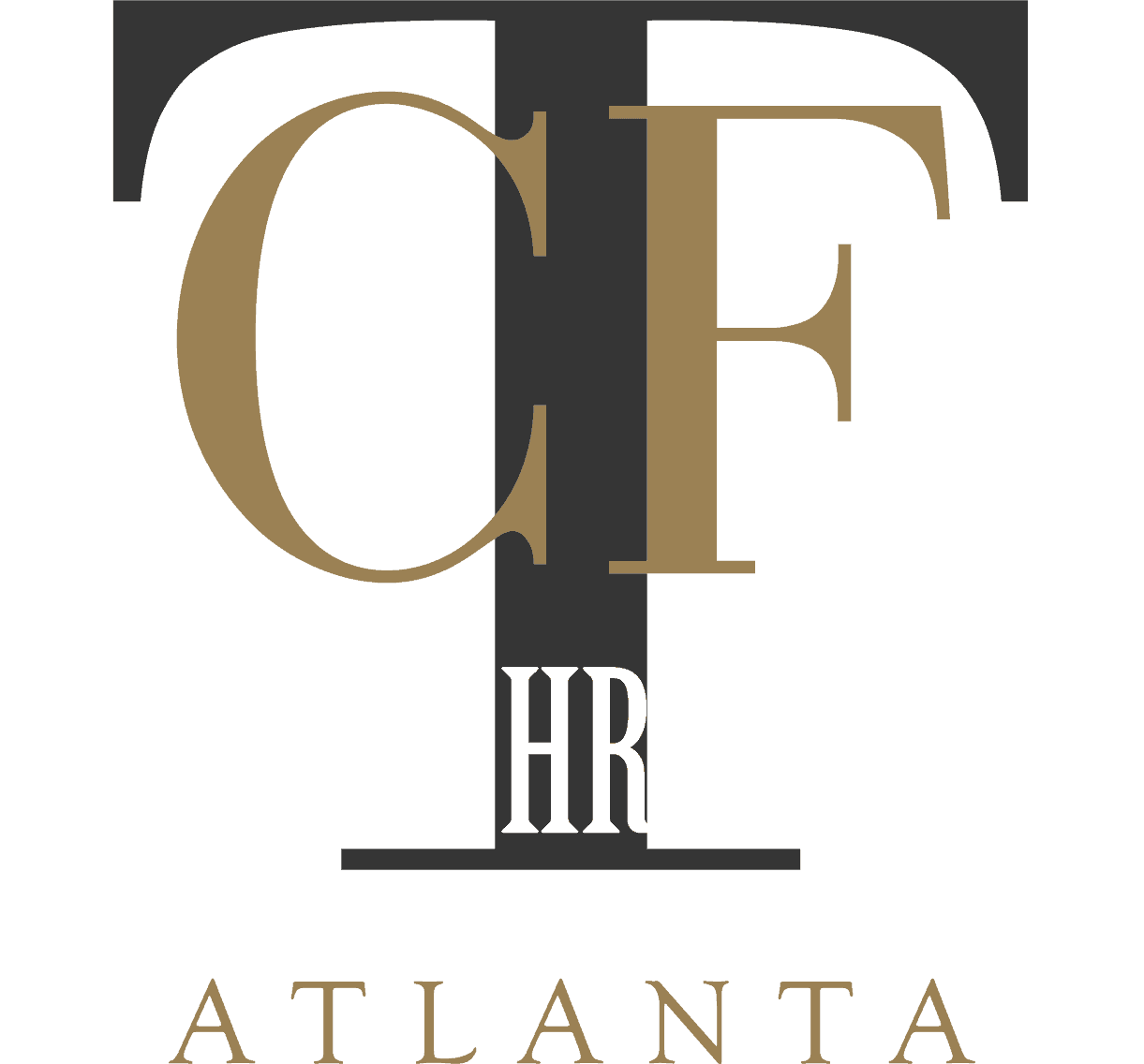
Police Misconduct and Brutality Lawyers Atlanta, Georgia
Police officers take an oath in which they promise to serve and protect their community. However, countless reports and lawsuits are filed against police officers every day. Our police harassment lawyers will investigate your case to determine whether a clearly established constitutional right has been violated. Contact the Atlanta police brutality lawyers at The Cochran Firm Atlanta immediately if you, a friend, or a family member has been a victim of police harassment.
Our experienced police misconduct attorneys provide the localized legal expertise necessary to hold those in power accountable in neighborhoods and cities across Atlanta, including:
- Midtown
- Downtown
- Buckhead
- Decatur
- Sandy Springs
- Roswell
- Alpharetta
- Marietta
- Dunwoody
- Inman Park
- Virginia-Highland
- Old Fourth Ward
- Brookhaven
Whether an incident occurred in the heart of the city or a nearby suburb, we are committed to protecting your civil rights.
What Qualifies as Police Brutality in Georgia?
Police harassment cases involve officers who misuse their power and abuse a person’s protected rights. When determining if you have a claim, the central question is whether the officer used excessive force, which is evaluated under the Fourth Amendment’s “objective reasonableness” standard. While officers are permitted to use reasonable force when necessary, crossing that line into excessive force may constitute a violation of your constitutional rights.
Victims of police misconduct often suffer serious physical injuries, emotional trauma, and long-term psychological effects. If you or a loved one experienced harm at the hands of law enforcement, it is crucial to speak with an Atlanta police brutality lawyer who understands how to evaluate your case and hold those in power accountable.
Not all negative interactions with police rise to the level of brutality, but if your civil rights were violated, you may have a valid claim under federal or Georgia law. An experienced police misconduct attorney in Atlanta can determine whether your rights under the Fourth Amendment (protection against unreasonable search and seizure) or the Fourteenth Amendment (equal protection under the law) were infringed.
At The Cochran Firm Atlanta, our police brutality attorneys will carefully examine all facts and evidence related to your wrongful arrest or interaction. This includes body cam footage, eyewitness statements, and medical records. We are committed to seeking justice for those harmed by police abuse and helping victims recover the compensation they deserve.
Understanding Section 1983 Lawsuits
Most police brutality and misconduct cases are filed as federal civil rights lawsuits under a law known as 42 U.S.C. § 1983. Originally passed as part of the Civil Rights Act of 1871, this statute allows individuals to sue government officials, including police officers, for violating their constitutional rights. To win a Section 1983 claim, you must prove that the officer was acting "under color of law" (meaning, in their official capacity) and that their actions deprived you of rights secured by the Constitution or federal law, such as your Fourth Amendment right against excessive force.
Can You Fight Back Against Police Brutality?
Yes - and you should. Police personnel exist for public safety. In spite of various rules and regulations protecting the general public, many are subjected to harsh treatment by them. If you feel that you were mistreated by a police officer when being detained, you may be eligible to file a police brutality case in Georgia. In this situation, it is advised to consult an Atlanta police misconduct lawyer to seek justice. While not every interaction with police rises to the level of misconduct, many are unsure whether they experienced police brutality or not. Our Police Brutality lawyers in Atlanta can evaluate your case and determine whether your rights were violated under state or federal law. Victims often hesitate to come forward, fearing retaliation or assuming they don’t have enough evidence for a claim. However, with the right legal team, you can fight back.
Police abuse cases can involve:
- Excessive or Unreasonable Force: Includes police shootings or physical violence against a handcuffed and non-resistant suspect.
- Wrongful Arrest & Malicious Prosecution: Being arrested without probable cause or facing charges filed with malicious intent.
- Failure to Intervene: When one officer observes another using excessive force and does nothing to stop it.
- Racial Profiling and Discrimination: Targeting an individual based on their race, ethnicity, or other protected status.
- Denial of Medical Care: Deliberately ignoring a person's serious medical needs while they are in custody or prison.
- Evidence Tampering: The illegal concealing or destroying of evidence by law enforcement.
If you've experienced any of these, you may have a valid legal claim. Filing a complaint or lawsuit not only helps you seek justice—it also helps prevent future misconduct by holding police accountable. Contact the Cochran Firm Atlanta today for a free, no-obligation consultation.
Compensation for Police Brutality and Civil Rights Violations
The compensation available in a police brutality lawsuit in Georgia depends on your case specifics. These details include the extent of misconduct, severity of injuries, and the entities involved. Potential damages include:
- Medical Expenses: Covering all costs for emergency room visits, hospitalization, physical therapy, and future medical care related to your injuries.
- Lost Income: Compensation for wages lost while you were unable to work due to your injuries or wrongful detention.
- Pain and Suffering: Damages for the physical pain and emotional trauma you have endured.
- Attorney's Fees and Costs: In some civil rights cases, the defendants may be required to pay your legal fees.
- Punitive Damages: In cases of egregious misconduct, courts may award punitive damages to punish the offending officer and deter similar behavior.
It's important to note that Georgia law imposes a cap on punitive damages in most cases. Under O.C.G.A. § 51-12-5.1, punitive damages are generally limited to $250,000. However, this cap does not apply if the defendant acted with specific intent to cause harm or was under the influence of alcohol or drugs at the time of the misconduct.
What are the Challenges in Winning a Police Brutality Case?
Fighting a case against a police officer will be the biggest challenge altogether. Filing a harassment case against the individual will be the first hurdle. The victim might face difficulty in providing enough evidence against the accused, making the legal proceedings difficult. In such situations, the victim must accept the help of an experienced police misconduct and brutality attorney. Our police harassment lawyers at The Cochran Firm Atlanta handle all legal aspects of your case.
How can the Cochran Firm Atlanta Help Victims of Police Misconduct in Georgia?
At The Cochran Firm Atlanta, we’ll be there for you. Our police abuse lawyers make sure that the victims are aware of their rights when it comes to police brutality. Our police misconduct lawyers will listen to your story and advise you on how best to proceed with your claim. The law is the same for everybody, and people should adhere to it irrespective of their position and power.
Atlanta Police Brutality & Civil Rights FAQs
Do I Need a Lawyer to File a Complaint Against a Police Officer?
You can file an internal complaint with the police department on your own. However, this administrative process rarely results in financial compensation. To recover damages for your injuries, lost wages, and suffering, you must file a civil lawsuit. Due to the complexity of civil rights law and legal hurdles like qualified immunity, it is highly recommended that you hire an experienced police brutality attorney to handle your case.
What Is the Statute of Limitations for a Police Brutality Case in Georgia?
In Georgia, the statute of limitations for personal injury cases, which includes federal civil rights claims for police brutality, is generally two years from the date of the incident. If you do not file a lawsuit within this timeframe, you may lose your right to seek compensation forever. Because there can be exceptions and other notice requirements, you should contact an attorney as soon as possible to protect your claim.
What Is Qualified Immunity?
Qualified immunity is a legal doctrine that protects government officials, including police officers, from being sued for civil damages unless their conduct violates a "clearly established" constitutional or statutory right. Proving that an officer is not entitled to qualified immunity is one of the most significant challenges in a police misconduct case, as it requires showing that the officer's specific actions were clearly illegal based on prior case law. This is why having an experienced civil rights attorney is so important.
Contact Our Police Brutality Lawyers Today for a Free Consultation
Contact the police brutality lawyers at The Cochran Firm Atlanta, and we will help recover damages you are lawfully entitled to.
Want to file an Injury & accident claim? Contact our Accident Lawyers, who have expertise in Auto Accident, Car Accident, Brain Injury, Personal Injury, Premises Liability, Truck Accident, Police Misconduct, and other areas of practice. Call The Cochran Firm Atlanta toll-free at (404) 222-9922, or send us your queries using this inquiry form.
